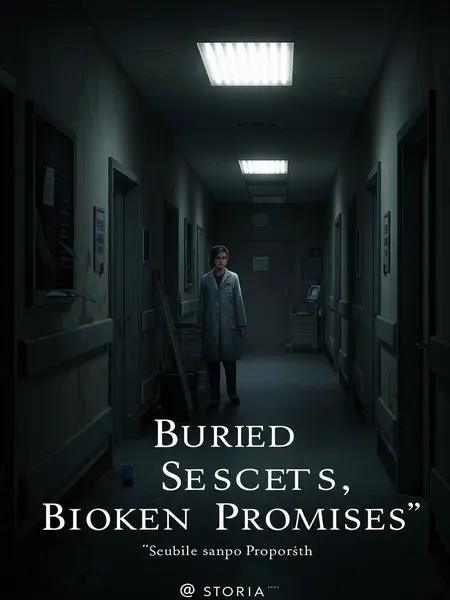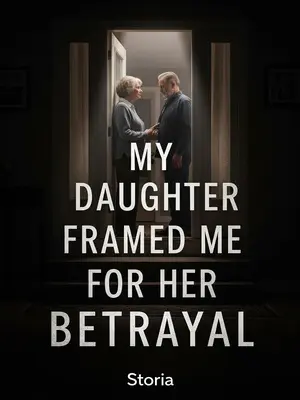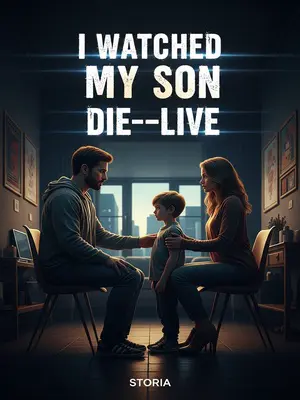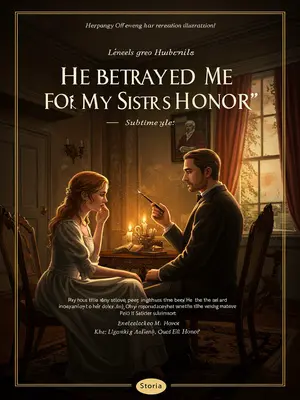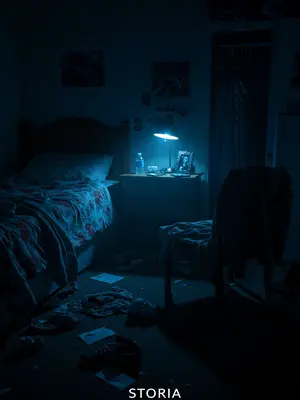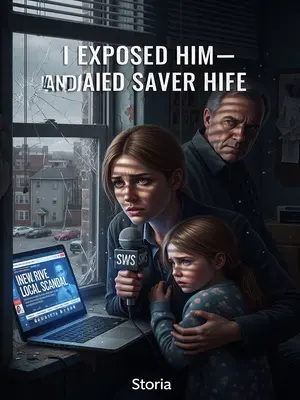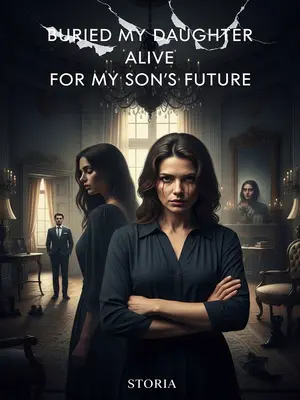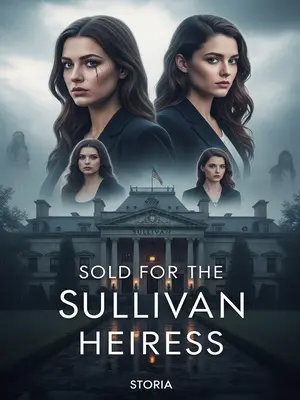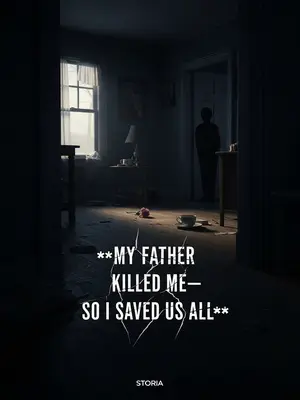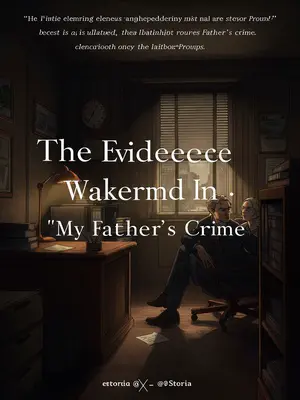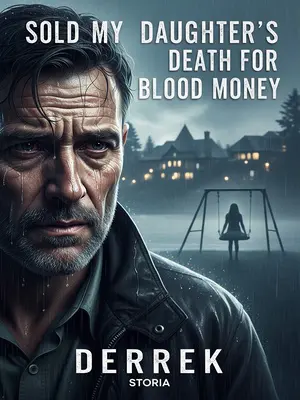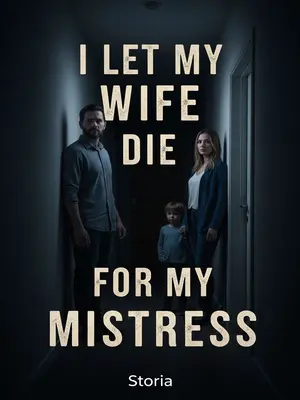Chapter 1: The Seventh Day
On the seventh day after my father died—the day when, by old tradition, a soul’s spirit might return to visit—and a family is meant to mourn in peace—more than a hundred members of the patient support group flooded into our home in Maple Heights.
The old, drafty colonial we called home had never seen so many people at once. The porch sagged under the weight of bodies, and the kitchen smelled of both musty flowers and burnt coffee left too long on the burner. The smells tangled together, making my stomach churn—like grief and exhaustion fighting for space. Outside, a few neighbors peered over their fences, clutching mugs from the Maple Heights Diner, whispering behind hands. The late September air was thick with humidity, heavy with anticipation that made my skin itch.
The group leader raised his voice, slicing through the murmurs: "Hold up on the prayers—let’s talk medicine first."
His words landed hard, drawing uneasy looks. Some people glanced at the faded church cross on the wall; others stared at the casserole dishes lined up by the door—tuna, green bean, even one suspiciously labeled "funeral potatoes." The Midwestern show of sympathy felt almost out of place amid the desperation. Someone coughed, the sound echoing off hardwood floors.
After a tense beat, the group leader’s patience snapped.
He paced before the old fireplace, boots scuffing the brick, foot tapping a nervous rhythm. Restlessness spread like wildfire—eyes flicked from family photos on the mantel to unopened sympathy cards stacked high. I caught a woman wringing the hem of her T-shirt, knuckles white with worry.
"We did take a few things from your house, but let's put that aside. Can you really just stand by and watch us die?"
There was a crackle of resentment in his tone, like he was brushing off their looting as some harmless misunderstanding. A few nodded, some sheepishly, but the air was drawn tight as a bowstring.
Seven days had passed. Their medicine was gone, and now their anxiety was boiling over.
You could feel the tension. People clutched empty pill bottles or ones with just dust inside. A hollow-cheeked man fiddled with his baseball cap. It was as if everyone’s heart was pounding, desperation rising like a thunderstorm about to break.
The group leader climbed up onto the makeshift platform for the memorial, his conviction blazing: "Friends, we just want to live—is it wrong to want to live?"
The platform was nothing more than a borrowed church podium and a faded American flag draped nearby, but he acted like it was a judge’s bench. His urgency crackled, and the crowd pressed closer, the hardwood groaning beneath them.
People at the back raised their hands and shouted in unison, "No! No! No!"
The sound rolled through the house—raw, unified, like an old gospel choir, but their harmony was built on despair and indignation. One teenager stomped her foot, eyes wide with fear.
"Friends, there is someone who could let us live, but instead stands by and watches us die. What should we do about such a person?"
The crowd roared back, fists pumping, faces flushed: "Let him answer for it! Let him pay! Let him answer for it! Let him pay!"
The words hit harder than any funeral hymn. Even the light through the stained glass looked harsher, coloring the room with accusation. A woman near the piano dabbed her eyes, torn between grief and fury.
The group leader locked eyes with me from the platform. "Are you really just going to watch us die? Are you just hoping we all die?"
My cheeks burned. I wanted to shrink into the floor, disappear under the weight of their blame. I felt every eye on me, their stares burning holes in my skin. The room seemed to shrink, the walls pressing in. My throat closed up, and for a moment, I was back in high school, frozen in front of the class, unable to say a word.
More and more onlookers gathered, pointing and whispering as they listened to the support group’s stories.
Even Mrs. Donnelly from next door popped her head in, her little dog yapping at her ankles. "That’s the Whitman boy, right? Poor thing’s been through enough." People snapped photos on their phones, already crafting the next neighborhood Facebook post. It was the kind of spectacle Maple Heights hadn’t seen since the fire at the old library.
"We're all cancer patients. Our families are struggling. We rely on a certain herbal medicine every day. Now, he's cut off our supply—he just wants us dead!"
The accusation hung in the air like a bad smell. Some people wept quietly, others glared daggers at me. There was a mother with her daughter—both gaunt, both clutching each other. Their pain was as real as the cracked linoleum beneath our feet.
Emotions surged. A few sniffles turned into outright sobs. A man in a faded Cleveland Browns hoodie stared at his hands, shaking. Even the old-timers wiped at watery eyes. The room’s grief was sticky, impossible to escape.
The group leader, like a conquering hero, stretched his hand toward me: "See? You have to be like your father—keep providing us with the medicine. If you think it's too much trouble, just hand over the prescription. That's good enough."
He said it like it was the simplest, most reasonable thing. His hand hovered in the air, palm up, demanding. My father's portrait watched from the mantel, his eyes kind and tired, even in the frame.
This kind of moral blackmail and emotional plea had always worked in the past.
It was the playbook—the same shame, guilt, and hope twisted together. I recognized it from Dad’s late-night phone calls, always behind the study door. He’d come out exhausted but determined, never turning anyone away.
But I’m not my father. I don’t have his bottomless compassion.
My hands shook—not from empathy, but from the cold determination of someone who’s been pushed too far. I felt the weight of all the times I’d seen Dad sacrifice his own comfort, his own health, for these people. Now they wanted even more.
The day my father died, my heart turned cold.
It wasn’t sudden—just a slow, icy seep. Grief was a dull ache, but the anger—at them, at myself—was sharp. The house felt empty; his slippers sat untouched by the bed. In the kitchen, the clock kept ticking, as if mocking the silence.
